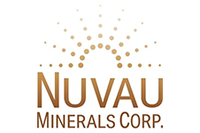International Lead and Zinc Study Group projections target a rebound in zinc demand and mine and refined metal output in 2013.
Zinc surpluses will continue to grow in 2012, but should fall in 2013, the International Lead and Zinc Study Group (ILZSG) said this week.
The ILZSG also said that 2012 world demand for refined zinc metal is anticipated to fall by 0.3 percent to 12.71 million tonnes (MT) in 2012, but will see a robust 3.8 percent increase to 13.19 MT in 2013.
Europe is the biggest influence on this year’s demand reduction as Belgium, Germany, Italy and Spain are all reporting slowed buying. However, both Europe and China are expected to see demand growth in 2013, with increases of 2.5 and 5.6 percent respectively.
A reduction in demand will be compounded by an increase in supply this year. 2012 will see a 5 percent increase in global zinc mine output to 13.6 MT. That will climb to 13.96 MT, an additional 2.7 percent, in 2013, the group forecasts.
Global refined zinc metal output will also fall by 2 percent this year to 12.86 MT on weak market conditions, but is slated to rise by 4.8 percent, to 13.48 MT, in 2013.
China has been a dominant factor in both the supply and demand changes witnessed this year and predicted for 2013. In terms of growing mine output, widespread increases are expected across the country’s zinc mining regions; this year, the ILZSG predicts that China will see a 13.7 percent increase in output compared to a global increase of 5 percent.
Refined zinc metal in China is set to fall for the first time in 23 years, and that will bring global production down as well. As the country kickstarts its slowing manufacturing and infrastructure growth rates, next year’s 9.1 percent refined production growth will make up the brunt of zinc output growth.
China’s influence on zinc markets is significant and growing. Its 30 percent share of global zinc mine production in 2011 and its growing consumption of mined and refined zinc are the largest factors shaping world zinc market dynamics.
Better-than-expected growth figures out of China have also helped buoy zinc markets this week, but overall prices have declined in October.
Pessimism around China’s ability to sustain strong growth has led to many culled orders for refined zinc. That has caused a substantial reduction in London Metal Exchange (LME) cash buyer prices since the beginning of the October. With prices reaching just below the US$2,100/tonne mark on October 3, cash buyer prices began the day at $1,859.50/tonne on October 18.
Three-month delivery prices have fallen by more than $200/tonne this month, settling on October 17 at $1,899/tonne. On the same day, the LME’s Asian benchmark zinc price was $1,906.56 and official opening stock for the same day was 1,059,650 tonnes.
Company news
Despite timidity in the zinc market in recent months, a number of junior companies have continued to secure financing ahead of predicted future supply shortages.
Tarsis Resources (TSXV:TCC) issued 6.87 million units at $0.15 per unit, collecting $1,030,500 in private financing to support general exploration activities in the Yukon, Mexico and the US. Tarsis is primarily a gold and copper company, but is also interested in zinc.
Avrupa Minerals (TSXV:AVU) also secured $1.2 million worth of financing from a number of strategic investors, including one investor that is part of the Sprott group of companies.
Avrupa issued 7.99 million units at $0.15 per unit. That amount includes one common share and one non-transferable common share purchase warrant capable of being redeemed after a 36-month period (expiring October 4, 2015) at a price of $0.25 per common share.
The company intends to use the funding to support the development of a number of Europe-based exploration projects, including five licenses spread throughout Kosovo in the Trepça Mineral Belt of the Vardar Zone, historically a long-term producing district of silver and base metals, among others.
Securities Disclosure: I, James Wellstead, hold no direct investment interest in any company mentioned in this article.

